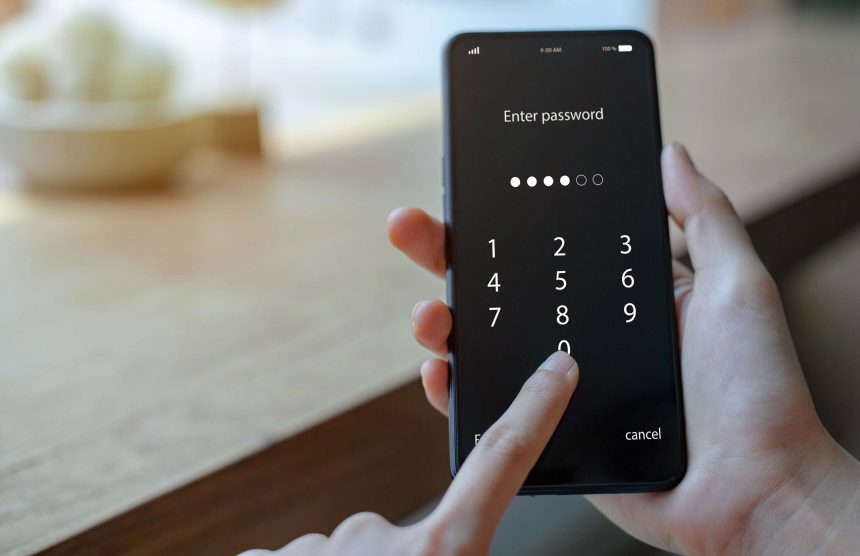Introduction
Happy National Cybersecurity Awareness month! I bet you didn’t know there was such a thing. If you are like me, you shrink just hearing the word “cybersecurity,” yet it is such a vital part of our society. What is cybersecurity?
National Cybersecurity Awareness Month (NCSAM) began in October 2004 as a joint effort of the National Cyber Security Alliance (NCSA) and the U.S. Department of Homeland Security (DHS) to make Americans more aware of how to stay safe and secure online. In society today, we can get online almost anywhere—in airports, in businesses, in our car, in church and on many devices—our phones, our tablets, or our computers. Just as the list is endless, there are endless ways that people hack into our accounts, steal information and use it for their own benefit. So what can we do to protect ourselves? Print and review the information on these resources with the women:
https://security.berkeley.edu/resources/best-practices-how-to-articles/top-10-secure-computing-tips
https://www.govtech.com/security/5-Ways-to-Protect-Yourself-from-Cybercrime.html
https://www.theamegroup.com/network-security-threats/
Program Ideas
The following site has games put out by Texas A&M Division of Information Technology: https://it.tamu.edu/security/cybersecurity-games. They produce a new game every year during National Cybersecurity Awareness Month. Invite the women to play some of these games together. Or have each person write what they think is the right answer and give a prize for the one who has the most correct.
The site https://wordmint.com/public_puzzles/94718 has free worksheets you can print for the group to work on. There is also information on the Internet for creating crossword puzzles or word searches using words associated with cybersecurity.
Password Madness
Another idea is to discuss passwords. There are many resources online to help with creating a secure password. Help the women to understand what a good password looks like simply by creating words (passwords) with letters and symbols. You can make this into another worksheet/game for individuals or groups. A couple of examples would be as follows:
Feelings! – F331ing5!
Jesus loves me forever! – J35u5<35m343va!
Speaker
Contact the police department to see if someone on their staff could speak on the subject of cybersecurity or the latest scams.
Share
Ask the women to share incidents of attempted cybersecurity breaches or scams. Some common ones are:
- You owe money to the IRS and if you don’t pay you will be arrested.
- A child/grandchild has been arrested and they need money for bail.
- Kidnapping of loved one—pay the ransom or else.
- Your Social Security card has been linked to criminal activity and can only be reactivated for a fee.
- The individual is getting a cost of living increase, but they must provide their name, Security Security number and date of birth via an email.
Other Resources
This is the main website for National Cybersecurity. A lot of information shows how to get training and education, and even provides a link for National Cybersecurity Awareness Month. In 2019, a link to play a Jeopardy type game about cybersecurity was available.
There Is Hope
Cybersecurity was created to keep us safe from online predators. However, sometimes these criminals still find a loophole and can steal our information or create a bug or virus. While it is supposed to be secure, it is not always secure.
Unlike cybersecurity, we have secure hope in God. Scripture states, “You will be secure, because there is hope; you will look about you and take your rest in safety” (Job 11:18, NIV). This hope is not the kind where we cross our fingers and “hope” something will happen. This is a confident hope that knows God will fulfill His promise, even when we cannot see it right in front of us.
One of God’s promises states, “’For I know the plans I have for you,’ declares the Lord, ‘plans to prosper you and not to harm you, plans to give you hope and a future’” (Jer. 29:1, NIV). Does this promise mean that our lives will always be easy or bright? No—it means that even when we are living in the dark times of our lives, we can be assured that God will make something new of it in the future because He has a plan. We may not see the light at the end of the tunnel in the moment, but hope believes there is a light at the end of the tunnel. Hebrews 6:19 (NIV) says, “We have this hope as an anchor for the soul, firm and secure.”
Hope is security. Hope is an anchor. Hope will help us get through the dark times. Secured hope is far more important than cybersecurity. What is keeping you from having secure hope in God?

